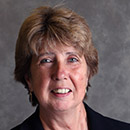Doctors who harm patients face ‘tougher sanctions’
Posted 21/08/2014

Doctors who make mistakes in the care of their patients could face tougher sanctions under plans being considered by the General Medical Council (GMC). Under the proposals the regulator could force doctors to apologise if they have previously refused to do so. The GMC also wants to be able to restrict practice of those who have made mistakes and since retrained, even if their work has improved. Views of the public and specialist groups are now being sought.
Health Secretary Jeremy Hunt said: “After the tragic failings at Mid Staffs [hospital], we are taking steps to improve patient safety and ensure doctors are held to account for poor care.”
The consultation closes on 14 November and the outcome will be published next year.
Peter Walsh, from the charity Action Against Medical Accidents (AvMA), told the BBC: “These measures are a step in the right direction but they are not yet wide enough or comprehensive enough to make it a genuinely patient-centred process.”
The GMC, which regulates all doctors in the UK, said the intention was to protect patients in the small number of cases where the public expects stronger action. It has powers to restrict practice, suspend or permanently remove doctors from a register that allows them to work. Extensive guidelines are already in place but the regulator said certain situations merited much stricter measures. For example, according to new proposals doctors who fail to raise concerns about a colleague’s ability to practise safely could face harsher penalties than currently.
GMC chief executive Niall Dickson said: “Doctors are among the most trusted professionals, and rightly so. In the vast majority of cases one-off clinical errors do not merit action by the GMC. But if we are to maintain that trust, in the small number of serious cases where doctors fail to listen to concerns they should be held to account for their actions.” He went on to say that he believed doctors and patients wanted to see “stronger action” in serious cases.
Clare Gerada, medical director of the NHS practitioner health programme, which supports doctors with mental health problems, told BBC Radio 4’s Today programme she accepted the GMC had a “difficult job”. But she said she was “concerned” tougher sanctions in some cases could “traumatise and put in additional fear for the vast majority of doctors who go in every day to do a good job”. Dr Gerada also told the BBC: “Of course it’s important that we take into account the patient and we look at the damage that’s been done to the patient, but it’s also important that whatever sanction is a proportionate sanction, is a fair sanction.”
Julie Crossley, a medical injury lawyer at Ashtons Legal, comments: “You have to get a balance but continual concern about a docto’rs ability must be investigated. So far as apologies go, my experience is that this is the main priority for patients if things go wrong. It is only when they don’t get an apology that they turn to lawyers and ultimately go down the litigation route which is stressful for everyone concerned.”
How can we help?
If you have an enquiry or you would like to find out more about our services, why not contact us?

